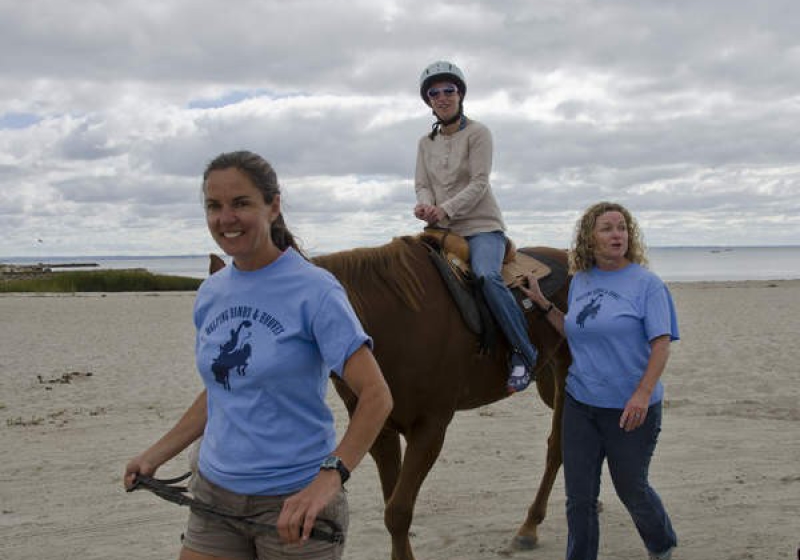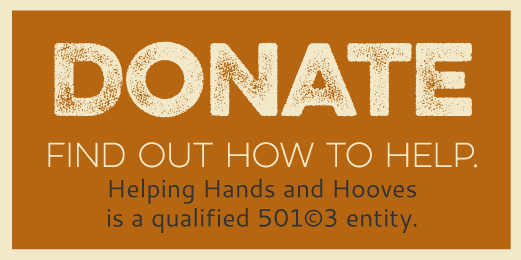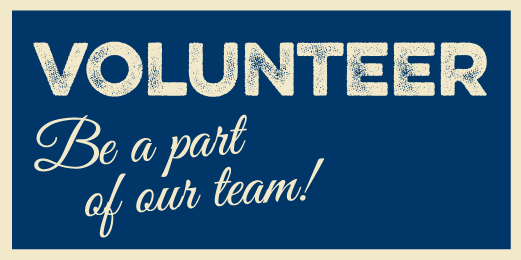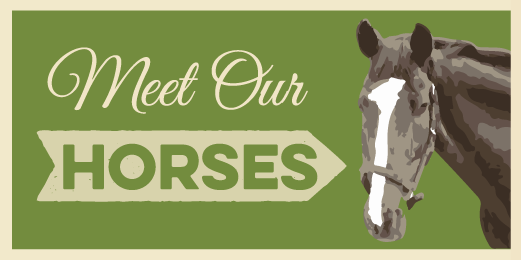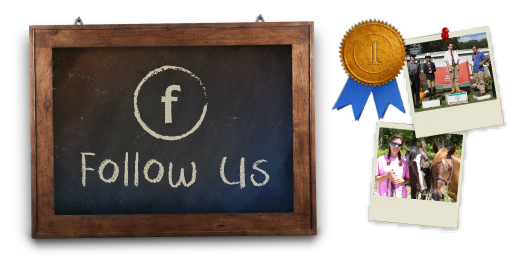Sippican Week | By Georgia Sparling
MATTAPOISETT — Spend a little time with the folks at Helping Hands and Hooves and you’ll quickly find they’re much more than just a cleverly worded name.
A therapeutic horse riding program, Helping Hands and Hooves works with disabled adults, teaching them to ride and even compete.
Founders Julie Craig and Debbi Dyson decided to start the nonprofit after seeing the effect horseback riding had on their own family members with disabilities.
Dyson’s brother, who has autism, wanted to ride a horse after he saw her daughter practicing with Craig.
“He did and he absolutely loved it,” said Dyson. “We saw the change in him, how much his anxiety went down, so we decided we want to give that experience to other adults who couldn’t afford it.”
Eight years later, Helping Hands and Hooves is going strong.
Located at Craig’s Seaside Farm on Aucoot Road, the organization has two sessions a week with an average of 12 students, many of whom have been coming for years through New Bedford’s Supporting Adults for Inclusive Living Program.
“We know a lot about each other. We have very special relationships with the students,” said Craig.
Each week students take turns riding Teddy, a gentle quarterhorse. They learn to take the horse around the ring, navigate obstacles, control the horse, and to balance.
But during a recent Thursday session, the students were out of the ring and hitting the road.
Following a successful trip to the Southeastern Massachusetts Special Olympics on Sept. 22, the group is taking a break from training.
This year marked the sixth that Helping Hands students competed in the equestrian portion of the competition. Of the seven students who went, many returned home with gold and silver medals.
“The equestrian [event] is really special,” said Craig. “You see these people, some of them are getting out of their wheelchair, barely able to stand, and then they get on a horse and they can ride.”
Sara Gebhard, of Dartmouth, began volunteering with Helping Hands in April 2012 and has gone to two Special Olympics with the group.
“For someone who’s had a hard time to be able to have that sense of internal confidence…I just think it’s great to be able to facilitate that,” said Gebhard.
After the event, Gebhard saw a Facebook post from one of the women about her experience.
“I really like riding horses because I feel I can do something special,” the young woman wrote.
Walks to the beach and nearby trails give the students a chance to enjoy nature, too said Dyson.
“Most of the kids are in the city all the time,” she said. “It’s very different from what their lives are outside of Helping Hands and Hooves.”
Walks also give volunteers a chance to talk with the students.
“Because they’re doing a physical sport, they stop worrying so much about saying the right thing and they just talk,” said Gebhard. “I think it’s the only place where they really can talk about a lot of stuff that they would otherwise never have an opportunity to say.”
Those one-on-one times are something larger organizations can’t do as easily, said Craig.
Working exclusively with adults and keeping enrollment low has meant it’s harder to get grants to support the nonprofit.
“A lot of grants are for big organizations, but we think it’s quality over quantity,” said Craig.
A few years ago Helping Hands did receive a grant to build an indoor ring so their students can practice year round, and their Christmas Polar Plunges at Town Beach generate enough donations to pay for the spring lessons.
Craig and Dyson said they are looking for more help, in particular at least one new volunteer for their Thursday sessions and someone to help them revamp their website.
To learn more, call Julie Craig at 508-758-3279 or Debbi Dyson at 508-758-4717.

